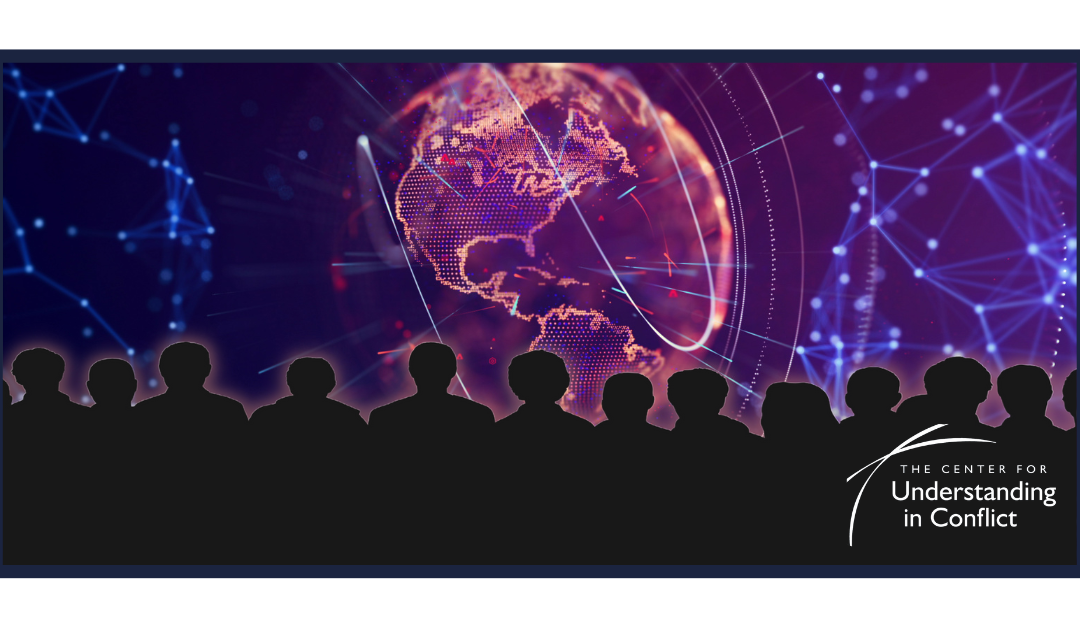Whether from interpersonal relationships, organizational disputes, or international tensions, conflicts can disrupt peace, hinder progress, and cause immense harm. The need for skilled conflict resolution practitioners has become increasingly evident in navigating these turbulent waters. These professionals bring unique skills and expertise to the table, playing a crucial role in mitigating conflicts, fostering understanding, and facilitating sustainable resolutions.
Conflict resolution practitioners are indispensable in today’s modern world because, at the heart of the matter, lies the undeniable reality that conflicts are inherent to human interaction. They arise due to differing perspectives, interests, values, and needs. In a world characterized by diversity and globalization, the probability of encountering conflicts has only amplified. Cultural misunderstandings, economic disparities, political tensions, and environmental concerns all contribute to the complexity of modern conflicts. Without effective resolution mechanisms, these conflicts can escalate, leading to profound consequences ranging from strained relationships to violence and war.
One of the primary reasons mediators are essential in today’s world is their ability to facilitate dialogue and promote understanding. In a polarized society where echo chambers and confirmation bias abound, the art of active listening and empathetic communication is often lost. Practitioners are trained to create safe spaces where parties can express their grievances, fears, and aspirations without judgment. Active listening and reframing techniques help parties empathize with each other’s perspectives, laying the foundation for constructive dialogue and reconciliation.
Conflict resolution practitioners possess a diverse toolkit of strategies and techniques tailored to different contexts and levels of conflict. From interest-based negotiation and mediation to arbitration and restorative justice, these professionals deploy various approaches to address the underlying causes of conflict and find mutually acceptable solutions. Significantly, they recognize that every conflict is unique and requires a customized approach that respects the autonomy and dignity of all parties involved.
In addition to resolving conflicts, practitioners serve as catalysts for long-term peacebuilding and reconciliation efforts. Rather than focusing solely on short-term fixes, they strive to address the root causes of conflict and promote structural changes that foster equity, justice, and social cohesion. This may involve facilitating intergroup dialogue, promoting inclusive decision-making processes, and advocating for policy reforms that address systemic inequalities. By engaging with communities and stakeholders at multiple levels, mediators contribute to creating sustainable peace frameworks that withstand the test of time.
Mediators also play a vital role in addressing emerging challenges and opportunities in an era of rapid technological advancements and digital connectivity. Online platforms and social media have reshaped the landscape of conflicts, amplifying their reach and intensity. Cyberbullying, online harassment, and misinformation campaigns have become prevalent, exacerbating social divisions and fueling distrust. In this digital age, mediators are tasked with developing innovative approaches to address online conflicts, promote digital literacy, and harness technology for constructive dialogue and reconciliation.
The increasing complexity of global challenges such as climate change, migration, and pandemics transcend national borders and require multilateral cooperation and dialogue for sustainable solutions. With their expertise in facilitation and negotiation, conflict resolution practitioners play a crucial role in bridging divides, building consensus, and mobilizing collective action. By bringing together diverse stakeholders, including governments, civil society organizations, and private sector actors, they facilitate the development of collaborative strategies that address the interconnected nature of modern challenges.
The indispensable role of conflict resolution practitioners in today’s modern world cannot be overstated. As conflicts become increasingly complex and interconnected, the need for skilled professionals who can navigate these challenges with empathy, expertise, and creativity has never been greater. By fostering dialogue, promoting understanding, and facilitating sustainable resolutions, conflict resolution practitioners contribute to advancing peace, justice, and human dignity. In a world plagued by division and discord, their work serves as a beacon of hope, reminding us of the transformative power of dialogue and cooperation in building a better future for all.

